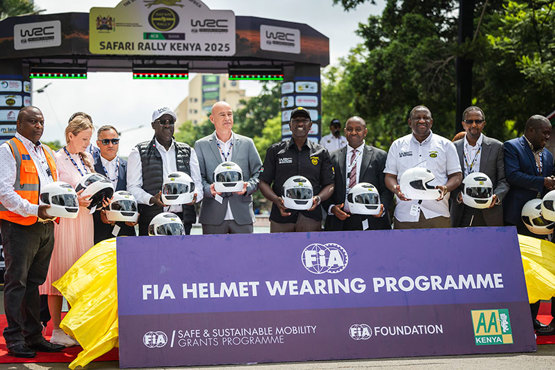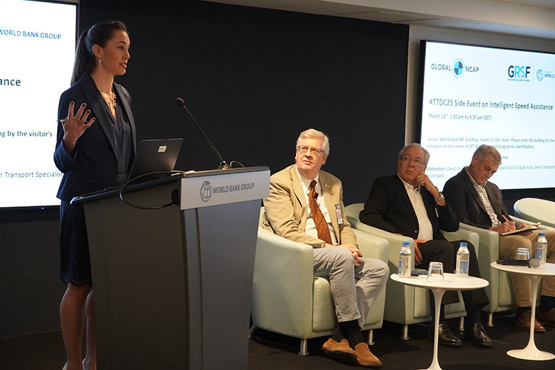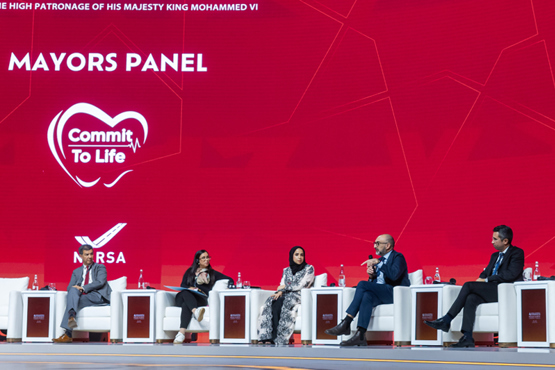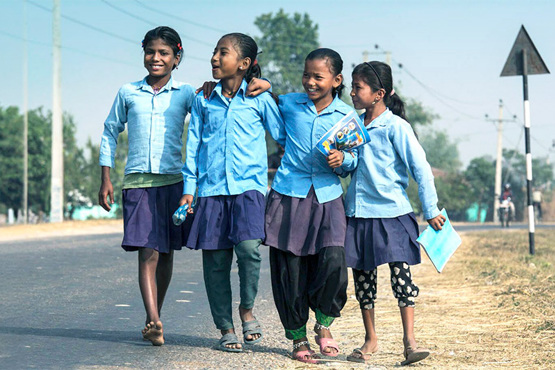Safe African Helmets Initiative Inaugural Workshop
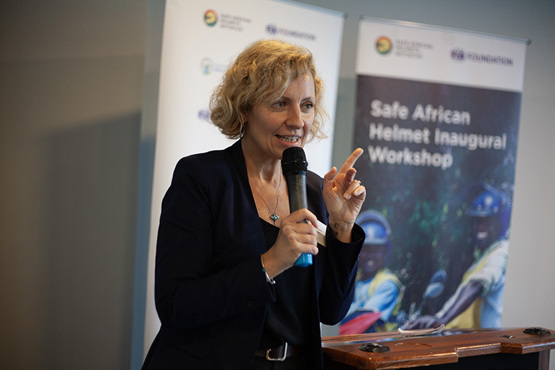
The Safe African Helmets Initiative (SAHI) inaugural workshop brought together policymakers, road safety advocates, and technical experts from across Africa and beyond in Kigali.
Convened by the FIA Foundation, and delivered with partner Transaid, the workshop served as a platform for sharing experiences, discussing challenges, and building consensus on the urgent need for safer helmets to combat the rising tide of motorcycle crash deaths and head injury.
FIA Foundation Programmes Director Aggie Krasnolucka said: "Motorcycle deaths are still increasing across Africa and helmets have become a focal point for public and political action. This workshop provided a critical opportunity to convene countries, share best practices, and collaborate on solutions to save lives and improve road safety across the continent."
The opening day established the workshop’s key themes, with welcome remarks from Jean Todt, the UN Secretary General’s Special Envoy for Road Safety. Rwanda’s safety progress with its recent helmet standard introduction and testing facility launch were set out by Permanent Secretary for the Rwandan Ministry of Infrastructure, Fidele Abimana, who delivered the keynote address, followed by Samuel Mporanzi of the Rwanda Standards Board and Jean Christophe Rusatira of Healthy People Rwanda. Placide Aconkpanle Badji, United Nations Economic Commission (UNECA) Economic Affairs Officer, provided a regional perspective, emphasizing the scale of the motorcycle safety challenge in East Africa and the need for cross-border collaboration.
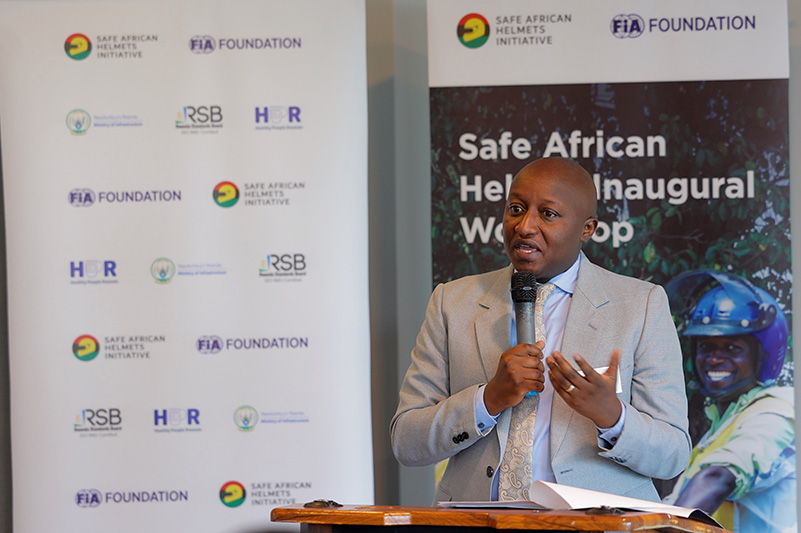
Panel discussions on the first day delved into critical topics. The first panel explored the importance of helmet standards for safety, with speakers emphasizing the role of quality standards in reducing fatalities. Panelists included: Christian Gakwaya, FIA Club, Rwanda; Greig Craft, President FIA Region II/Founder Protec; Virginia Muthini, Kenya Board of Standards (KEBS); and Charles Ssebalinga, Uganda National Bureau of Standards. The second session examined the social and economic benefits of improved helmet safety, with experts from healthcare, academia, and industry discussing how safer helmets reduce the burden on healthcare systems and protect livelihoods. Marisela Ponce de Leon Valdes, Africa Transport Policy Program (SSATP); Dr. Sylvie Inyange, Rwanda Neurosurgical Centre; Dr. Gladys Nyachieo, Multimedia University of Kenya; and Hoang Na Huong, Protec. The day concluded with a panel on legislative best practices, where speakers highlighted successful strategies and ongoing challenges in strengthening helmet-related laws. Speakers included: Carmen Koo, Global Road Safety Partnership (GRSP); Andrew Kiplagat, Director Road Safety for the National Transport and Safety Authority, Kenya; Janvier Twagirimana, Green and Inclusive Mobility Coordinator, Ministry of Infrastructure; and Mulugueta Muche, Standard Preparation Team Leader, Ethiopian Standards Agency.
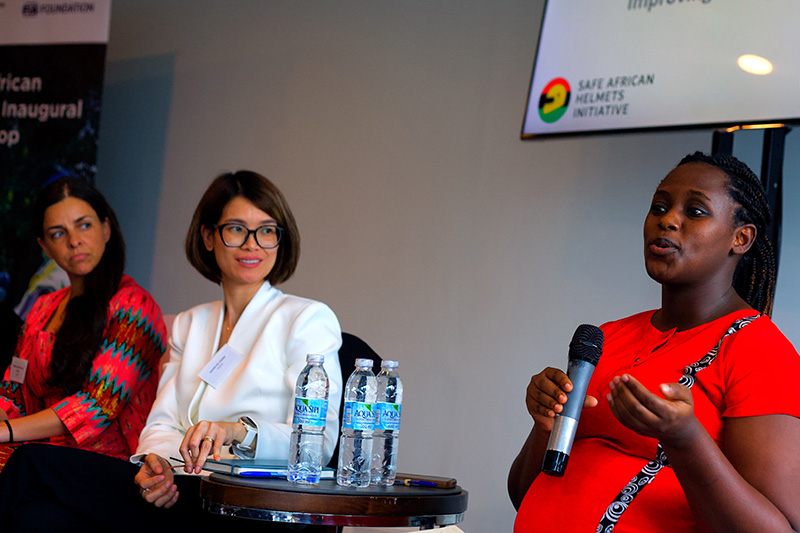
The second day shifted the focus to enforcement and coalition-building. Experts shared insights on strengthening enforcement mechanisms for helmet use. Speakers from law enforcement and policy organizations across the continent shared success stories and challenges in ensuring compliance with helmet regulations and included: Deus Sokoni, Traffic Police Solicitor, Tanzania; Boniface Rutikanga, Commissioner for Public Relations and Media, Rwanda National Police; Carmen Koo, GRSP; and Frederick Ochieng, Traffic Commandant, National Police Service, Kenya. A subsequent session on helmet coalitions explored how collaborative partnerships between governments, NGOs, and private sector stakeholders can amplify the impact of helmet initiatives with: Winstone Katushabe, Commissioner Transport Regulation and Safety, Uganda; Bright Oywaya, GRSP; Marisela Ponce de Leon Valdes, SSATP; and Hoang Na Huong, Protec CEO. Panelists provided case studies of effective coalitions, demonstrating the power of collective action to drive change. The afternoon was dedicated to interactive group workshops to develop actionable strategies for strengthening helmet standards, legislation, and enforcement, with a focus on creating context-specific solutions for different regions in Africa.
The final day centered on translating discussions into concrete action plans. Participants shared their group work outputs, refining ideas and identifying opportunities for regional collaboration. In the closing sessions set out key moments for the following year. Abdessadek Maafa, from the Moroccan road safety agency NARSA, shared insights on the forthcoming Ministerial on Road Safety which will take place in February 2025. George Njao, Director General of the Kenyan National Transport and Safety Authority, invited participants to the next SAHI event which will take place in Kenya in June 2025.
The workshop concluded with remarks from Aggie Krasnolucka and Raymond Murenzi, Director General of the Rwanda Standards Board, who expressed gratitude for the collaborative spirit of the event.
The day ended with a significant milestone, the launch of the first African helmet testing facility at the Rwanda Standards Board in Kigali. This state-of-the-art facility, supported by the FIA Foundation, represents a major step forward in ensuring that helmets meet rigorous safety standards, supporting the region’s efforts to improve road safety.
The Safe African Helmets Initiative workshop marked a turning point in addressing the devastating impact of motorcycle crashes across Africa. By convening diverse stakeholders to share knowledge and forge partnerships, the event underscored the importance of collective action in tackling this urgent challenge. With a clear roadmap and renewed commitment, participants left Kigali ready to drive meaningful change in their countries, ensuring safer roads and saving lives across the continent.
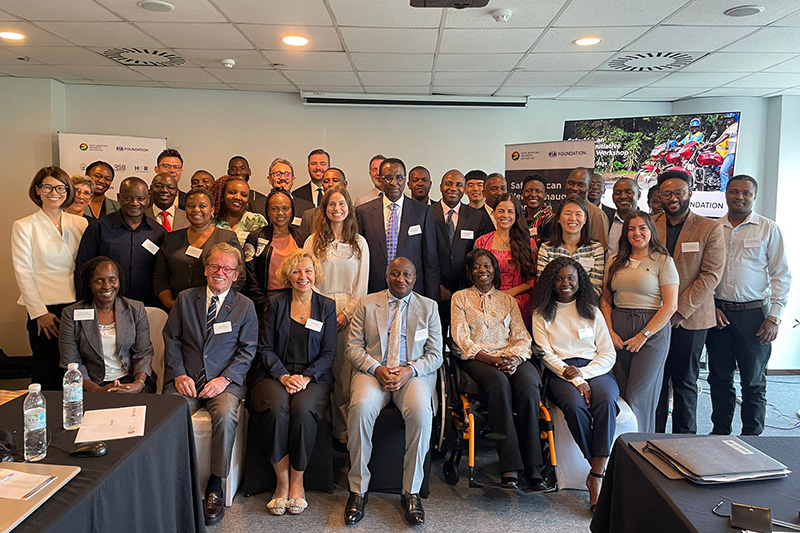
The SAHI inaugural workshop brought together policymakers, road safety advocates, and technical experts from across Africa and beyond.
